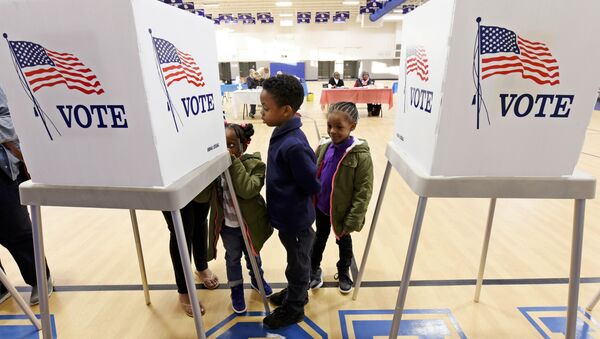That has lead to things like a meme that trended on Twitter on Monday — just one day before the midterm elections — "me voting in 2016 vs. me voting in 2018," which consists of two images showing a person's approach or appearance: relaxed in the former and extremely dire in the latter.
— Kristopher Tapley (@kristapley) November 5, 2018
Some people, however, are pushing their election fervor even further.
As if Silicon Valley weren't busy enough promoting voting on platforms like YouTube, Google Search, Facebook, Twitter and more, two new smartphone apps have rolled out with the aim of maximizing votes.
— Kirsten Gillibrand (@SenGillibrand) November 4, 2018
Those applications — VoteWithMe and OutVote — take information from public government records on Americans that have voted. All you need to do is sync your phone contacts with the app and it will tell you when and if they voted.
If your friend missed a vote, a line will cross out the year. Both apps grant emojis to users with good voting records and give you the option of reaching out to your contacts with pre-written messages like "You gonna vote?"
The app makers hope that their tools will help increase "social pressure" on non-voters, who made up a greater percentage of eligible voters in the 2016 presidential election than those who voted for either Trump or former Secretary of State Hillary Clinton.
— Albert Eisenberg (@Albydelphia) November 4, 2018
While techies seem to be working overtime on getting people out to vote, so are some candidates. Pennsylvania Democratic candidate for the US House of Representatives Scott Wallace has his campaign dealing out door hangers in his district. The signs say, "Who you vote for is private, but whether or not you vote is public record."
Wallace's race against incumbent Republican Rep. Brian Fitzpatrick is reportedly one of the most heated in the country.


